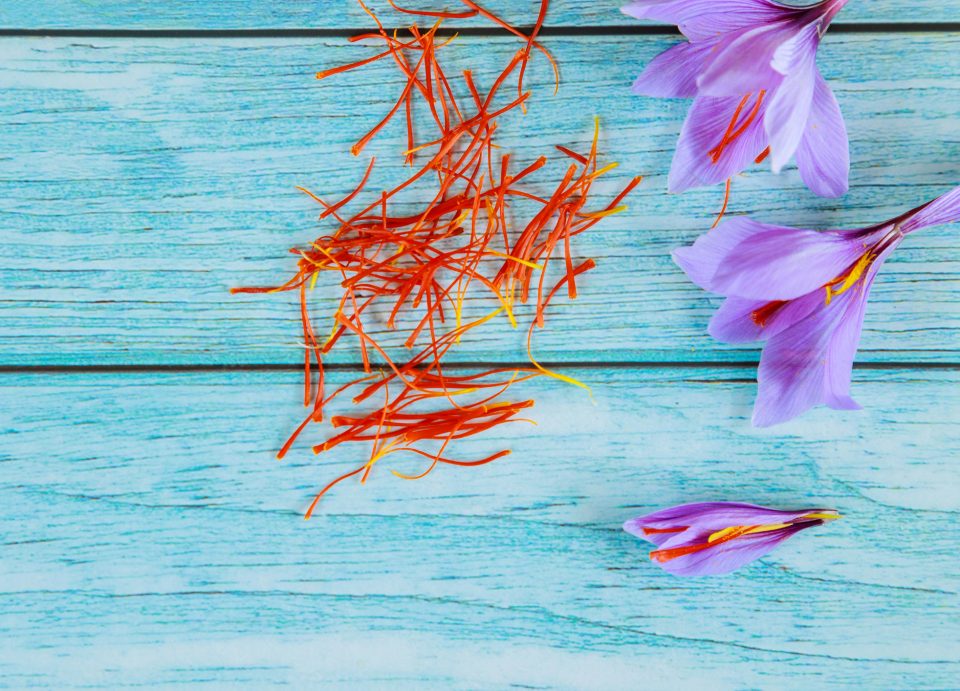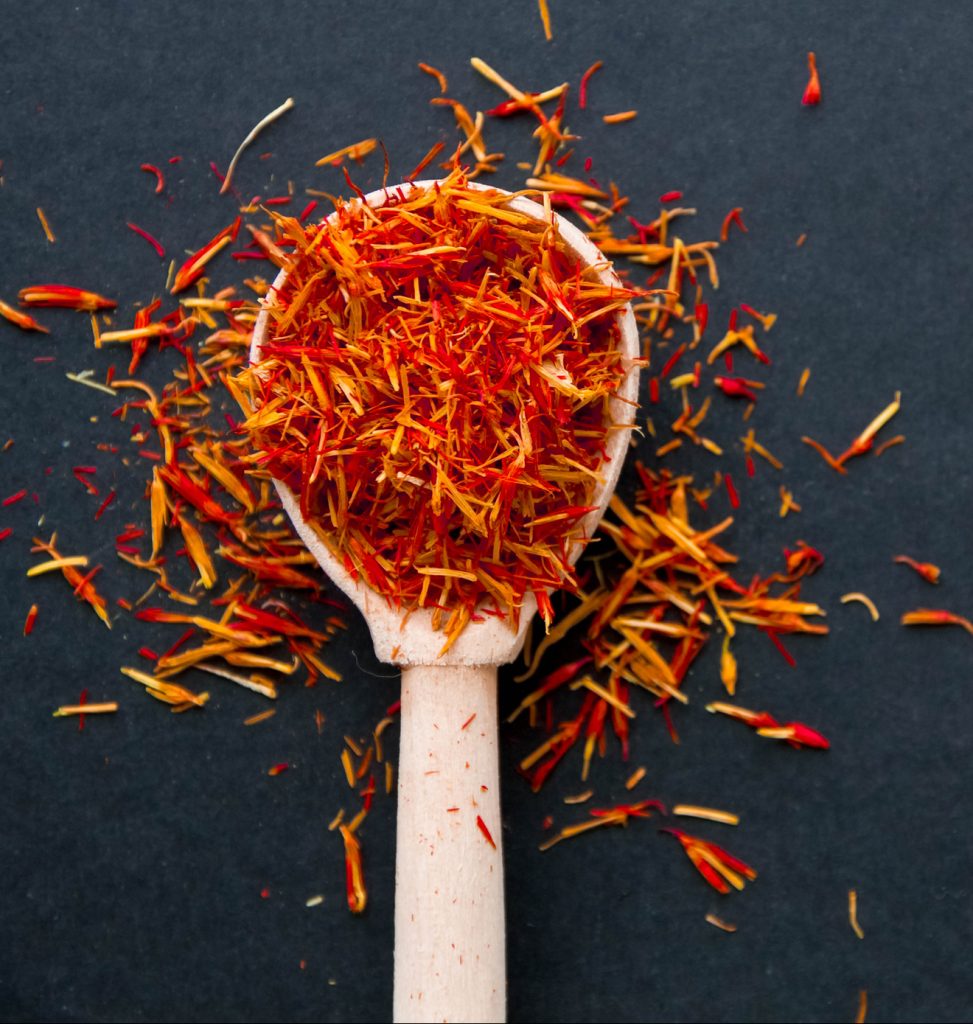Beneficial Saffron Is the ‘Queen of Spices’


 Saffron is a spice sometimes referred to as “red gold” or “the queen of spices” with some impressive potential health benefits. It is one of the most expensive spices in the world, mostly due to its costly production and labor-intensive harvesting process.
Saffron is a spice sometimes referred to as “red gold” or “the queen of spices” with some impressive potential health benefits. It is one of the most expensive spices in the world, mostly due to its costly production and labor-intensive harvesting process.
Saffron originated in the Mediterranean region and has long been used as a traditional spice, coloring agent, and medicine. In addition to adding a vibrant golden color to dishes, saffron adds a subtly sweet and floral flavor. Many of saffron’s health benefits stem back to its high levels of three powerful antioxidants which may play an important role in your health.
Here are a few of the potential health benefits of saffron:
- Nervous system: may help improve cognition in people with Alzheimer’s due to its antioxidant and anti-inflammatory effects.
- Mood booster: may help improve mood and provide similar effects to drugs used to treat mild-to-moderate depression.
- Premenstrual Syndrome (PMS): may reduce PMS symptoms in women.
- Weight loss: may help promote weight loss and curb appetite in some people.
- Cardiovascular health: may help lower blood pressure, protect against heart disease, and keep arteries clear and healthy.
- Libido booster: may have aphrodisiac properties.
- Improved blood sugar: may help lower blood sugar levels and improve insulin sensitivity.
Due to its high antioxidant content, saffron has health benefits that play a role in protecting the body from diseases impacting the brain, nervous, and cardiovascular systems. More research is needed to fully understand the benefits of saffron and draw strong conclusions about its benefits but the preliminary studies have some great promise.
Several human studies have been done recently examining the use of saffron to improve symptoms of common conditions like depression, diabetes, and heart disease. Saffron was researched as a treatment for depression in over two dozen human trials. One trial provided a 30mg dose of saffron daily for 7 weeks. For participants with mild to moderate depression, saffron significantly reduced the severity of their symptoms when compared to participants who received the placebo.
 When used as a spice or coloring agent and consumed in amounts commonly found in foods, saffron is safe and generally tolerated well. On rare occasions, adverse effects like nausea and gastrointestinal upset may occur with high intake levels or when taken in supplement form. Some people are allergic to saffron. Up to 1.5 grams of saffron per day is generally safe, but consuming over 5 grams is considered toxic. If you are pregnant or are on medications that lower blood pressure or blood sugar, talk to your doctor about if it’s safe for you to take saffron in supplement form. In general, consuming saffron is not risky when consumed as part of a normal diet.
When used as a spice or coloring agent and consumed in amounts commonly found in foods, saffron is safe and generally tolerated well. On rare occasions, adverse effects like nausea and gastrointestinal upset may occur with high intake levels or when taken in supplement form. Some people are allergic to saffron. Up to 1.5 grams of saffron per day is generally safe, but consuming over 5 grams is considered toxic. If you are pregnant or are on medications that lower blood pressure or blood sugar, talk to your doctor about if it’s safe for you to take saffron in supplement form. In general, consuming saffron is not risky when consumed as part of a normal diet.
Saffron is a staple in cuisines across the globe, importantly in Iran where it’s commonly grown as well as in Spain, Italy, Africa, and South Asia. This delicious spice is commonly found in rice dishes like paella, seafood risotto, biryani, and pulao, Bouillabaisse soup, and even in desserts and tea. One easy way to enjoy all of the medicinal benefits of saffron is to brew saffron as a tea or enjoy it in saffron milk.
Have you ever tried saffron for health? What are some of your favorite dishes that include this ancient spice?
Resources
Johnson, J. (2019, November 15). What are the health benefits of saffron? Medical News Today. Retrieved January 12, 2022, from https://www.medicalnewstoday.com/articles/327017#benefits
Natural Medicines Database. Saffron
https://naturalmedicines.therapeuticresearch.com/databases/food,-herbs-supplements/professional.aspx?productid=844. Updated 10/27/21. Accessed 1/11/22.
Raman, R. (2019, January 7). 11 impressive health benefits of Saffron. Healthline. Retrieved January 12, 2022, from https://www.healthline.com/nutrition/saffron
Singletary K. Saffron: Potential health benefits. Nutrition Today. 2020 Nov 1;55(6):294-30